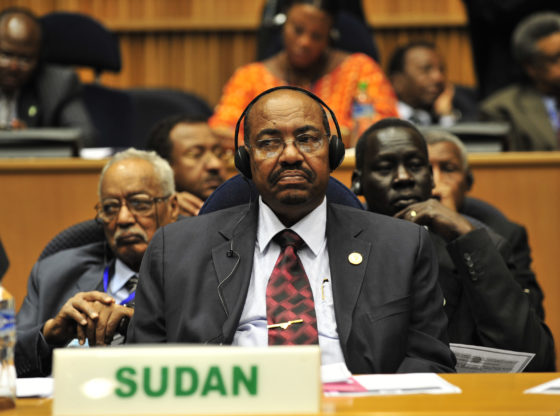The world’s awareness of Nigeria’s war against Boko Haram has largely arisen due to the organisation’s abduction of girls in the north-east of the country. In this article, Nafkote Dabi examines an issue less discussed: the toll the conflict has taken on Nigeria’s male population.
The conflict blighting north-eastern Nigeria is known to the world for one thing: the 276 girls abducted from the town of Chibok by Boko Haram in 2014. The plight of the missing schoolgirls sparked a national and international campaign. When #BringBackOurGirls started trending on social media it appeared the world was united in outrage. Time passed, the girls were still missing, and the campaign lost momentum and media coverage. In mid-2017, 82 Chibok girls were released but most of them remain in captivity until this day.
But away from the headlines and the social media storm, another tragic story was unfolding: the disappearances, detention and deaths of men and boys. Since the beginning of the conflict in 2009, thousands of men and boys have been killed by Boko Haram in north-eastern Nigeria.
Those who survived the mayhem, often men and boys of fighting age, have been captured and taken to Boko Haram bases, to be trained as fighters or to serve as Boko Haram members, taken to Sambisa forest and other remote areas, never to be heard of again.
Bana, a 35 year-old mother of four, who has been displaced by the conflict and is currently living in a host community in Maiduguri vividly recalls the day Boko Haram pillaged through her village: “Boko Haram attacked my village, burned down my neighbour’s house, and then came to mine. They told me to come out with my children, and then burned down the house with my husband inside. They took the women and children, and killed all the men.”
Stories of the men and boys who have perished during the conflict are not reported by the media, but are recalled by women currently residing in camps. Oxfam’s studies on the crisis in the north-east reveal that alongside shocking levels of violence against women, men have been killed, abducted or detained during the conflict, and that this explains the vast disparity in the number of women and men in many camps for displaced people.
In an Oxfam protection survey with communities affected by violence done last year, people reported 41 more killings of men and boys by Boko Haram than of women and girls; and the number is even higher among adults, with 77 percent more men killed than women.
Unfortunately, the tragedy for Nigeria’s men and boys does not stop with Boko Haram. Their deaths and disappearances continue under the so-called ‘protection from violence’ offered by the Nigerian security forces. In the fight against Boko Haram, men and boys have in fact been directly targeted by the military, who have carried out arbitrary arrests, unlawful detention, and even killings in the name of security.
According to Amnesty International, since 2009 the Nigerian military forces have arbitrarily arrested over 20,000 people, mostly young men and boys without reasonable suspicion and adequate investigation. Most of the detainees did not have access to family or lawyers, and experienced torture while in military detention. Amnesty International also reported that over 7,000 men and boys have died while in detention as a result of “overcrowding, starvation, dehydration and disease”. In addition, 1,200 men have lost their lives through extrajudicial execution.
Zahra, a 40 year-old woman who fled to a camp after the military stormed her village, does not know what happened to her husband. “The military came back again and took all the boys and men from the age of fifteen to thirty, and took them to Giwa barracks [in Maiduguri]” she said. “My husband never returned. I don’t know if the military killed him, he died in detention, or if he is still alive.”
The Nigerian government is responsible for ensuring the safety, security and protection of civilians – both from attacks by armed groups and from their own operations. However, the reality for men and boys is different as they are threatened by both the armed group and the military, leaving them with few alternatives but to go into hiding.
The army must adopt a screening process which guarantees the respect of human rights and must provide a safe haven for innocent men and boys. People suspected of supporting Boko Haram must be held in humane conditions and processes for investigation should be rigorous, follow due legal process, and transparent to encourage more surrenders. Those who have been wrongly accused must be released.
The tragic stories of men and boys who have been caught in the crossfire between Boko Haram and security forces have gone virtually unnoticed and the crisis continues to affect thousands of men and women. Just as the Nigerian public and international community demands the whereabouts of the Chibok girls, we should also ask, where are the men - the fathers, sons, husbands and brothers?
Nafkote Dabi is Policy Lead for Oxfam, currently based in Nigeria where she is working to raise awareness of the humanitarian crisis affecting people in the Lake Chad Basin as a result of Boko Haram activities and military operations. Previously, Nafkote worked as a Senior Policy Advisor on Peace and Security at Oxfam International’s African Union Liaison Office in Addis Ababa, Ethiopia.
Feature image: Yana, 27 years old, has 4 children. She fled her village Kuli when Boko Haram attacked during a wedding, taking the bride and other women. She came to the Kawar Mali Ward in Maidiguri with her children. Photo: Pablo Tosco/Oxfam.










